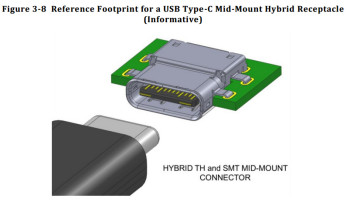
USB Type-C with reversible design has been finalized, doesn’t care which way you insert it
Ever since we started using them in modern smartphones (old phones like the Sidekick actually used a round AC plug), current standard USB cables are not only convenient, but single handedly responsible for some of our biggest-little frustrations in life. Jabbing away at your phone with a micro USB cable, only to find out you have the damn thing upside down. Yeah, that’s what hell is going to be like. But that’s only half the equation. The same frustrations exist when using the full sized end to plug into the host device/charger. See the illustration below that explains how USB cables actually exist in the 4th dimension.
Pretty much how inserting current USB cables work every time
Okay, so we’re all familiar with the problem facing our current non-reversible USB cables — something Apple actually addressed quite well when introducing their Lightning cable — and in an ongoing fight to find out ways we can better convenience our lives, just what are we as a human race doing about this age old problem? Apparently a lot. The folks responsible for the USB standard have just finalized a new USB Type-C connector which features not only a super handy reversible design (double sided USB 3.1 connections), but a 100W power delivery spec as well.
While you would think hardware manufacturers are more than happy with current non-reversible USB connectors, apparently the USB 3.0 Promoter Group says the new Type-C design has been very well received and that “representatives from the PC, mobile, automotive, and IoT industries have been knocking down our door anticipating this new standard.”
So how long before we see this new cable/ports available in our Android an/or PCs? Given the design was only just finalized and how popular current micro USB design is, it will probably take some time before we see wide spread adoption. If we had to guess, we wouldn’t expect to see smartphones using USB Type-C until sometime next year at the earliest. Until then, we’ll continuing doing back flips on those rare occasions we actually slip a USB into its port on the first try.
[USB]